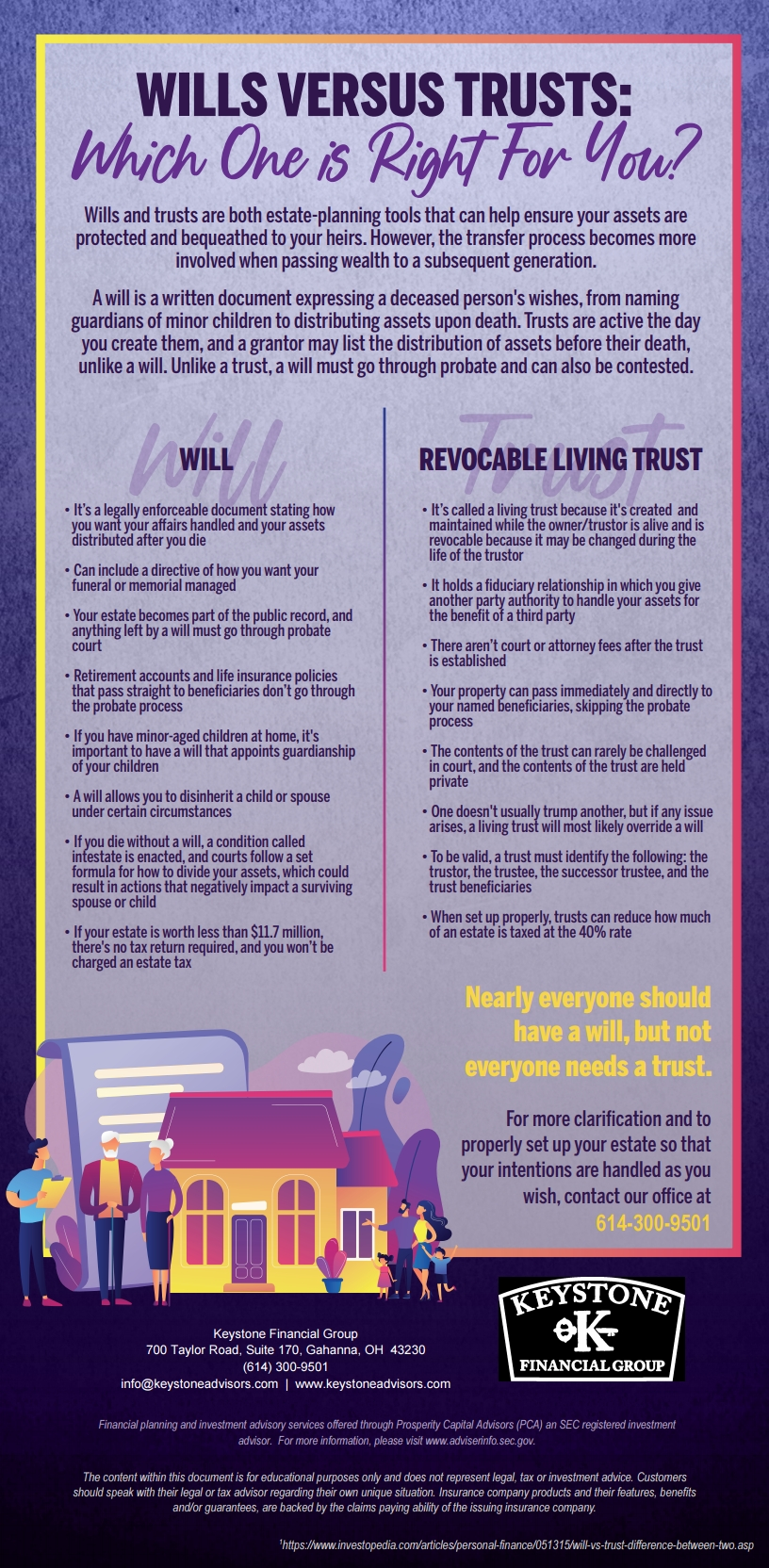
[Infographic] Understanding Wills Versus Trusts
Planning for your eventual demise is not a topic anyone wishes to dwell on, but it is important to take care of these details in advance to protect both your family and your estate. Setting up a proper Will or Trust ensures that the intentions—who, what, and when—of your estate are clearly laid out and can transition smoothly to your loved ones.
When you die the last thing you want to leave is a hefty tax bill. Properly managing the value of your estate ahead of time may help to lower the potential tax burden that could be placed upon your beneficiaries.
Preparing today for the uncertainty of tomorrow will help to avoid future arguments, tax burdens, and court proceedings.
Wills Vs. Trusts
Wills and trusts are two types of estate-planning tools that can help ensure your assets are protected and bequeathed to your heirs. However, the transfer process becomes more involved when passing wealth to a subsequent generation.
A will is a written document expressing a deceased person's wishes, from naming guardians of minor children to distributing assets upon death. Unlike a trust, a will must go through probate and can also be contested.
On the other hand, trusts are active the day you create them, and a grantor may list the distribution of assets before their death, unlike a will.
Nearly everyone should have a will, but not everyone needs a trust.
Which One is Right For You?
Check out our Wills Versus Trusts infographic below to understand the differences and help you start to think about which estate paperwork is best for your plan:
Want help planning for the proper disposition of your estate? We have local estate attorney partners that can help! Contact us today for a referral.
This content is developed from sources believed to be providing accurate information. The information provided is not written or intended as tax or legal advice and may not be relied on for purposes of avoiding any Federal tax penalties. Individuals are encouraged to seek advice from their own tax or legal counsel. Individuals involved in the estate planning process should work with an estate planning team, including their own personal legal or tax counsel. Neither the information presented nor any opinion expressed constitutes a representation by us of a specific investment or the purchase or sale of any securities.

